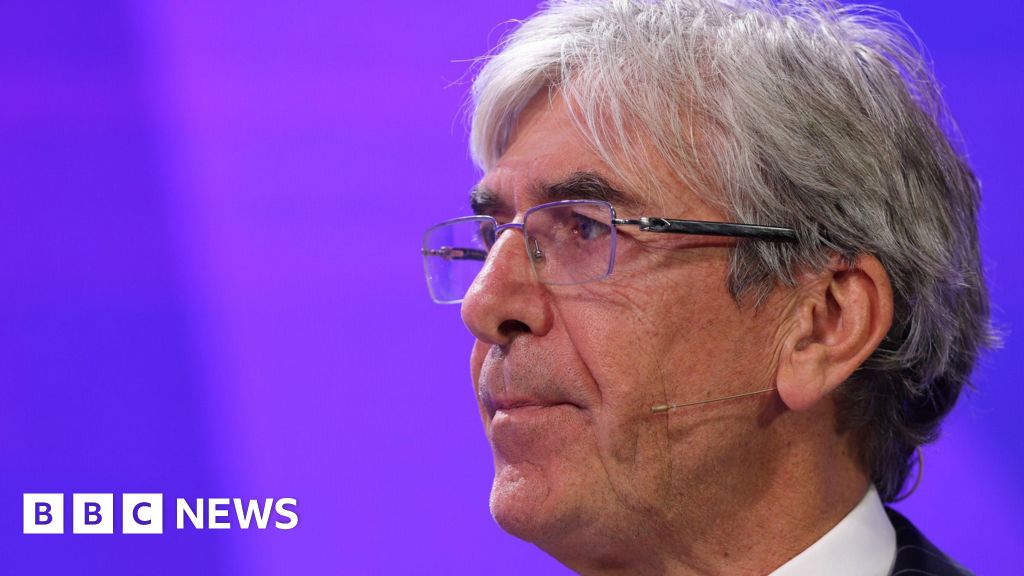Daniel Penny appeared unaware that his chokehold on Jordan Neely had killed the homeless man — and tried to downplay the maneuver hours later, insisting he wasn’t “trying to kill the guy,” it was revealed in court Thursday.
“I wasn’t trying to injure him. I’m just trying to keep him from hurting anybody else,” the Marine veteran, 26, told two detectives during a videotaped interrogation shown to jurors.
“That’s what we are taught in the Marine Corps,” Penny added, referring to protecting others, in the footage played during the third week of his lightning-rod manslaughter trial in Manhattan Supreme Court.
Detective Brian McCarthy testified that he did not tell Penny that Neely had died during the interrogation — though video of the subway car shows that Penny witnessed police officers trying to revive a lifeless Neely minutes after the chokehold ended.
Investigators with the Manhattan District Attorney’s Office were also, unbeknownst to Penny, watching him through a one-sided mirror at Chinatown’s 5th Precinct, McCarthy said.
It was the first time jurors got to hear the voice of the man whose fate they’ll weigh when they consider whether Penny is criminally responsible for Neely’s death.
“I’m not trying to kill the guy,” Penny told detectives in the video, insisting he let go of Neely, 30, “as soon” as two other men arrived to help restrain the homeless man — a statement that one of those men testified earlier this week is false.
“‘I am going to grab his hands, so you can let go,’” witness Eric Gonzalez said he told Penny after approaching him. He added he hoped Penny would remove his arm from Neely’s neck, but that Penny did not.
Penny’s lawyers tried to attack Gonzalez’s credibility by pointing out that he lied to investigators, claiming at first that Neely had hit him — a fib he explained by saying he’d been scared he’d get “pinned” on a murder charge.
In the interrogation video shown to jurors Thursday, Penny said he felt compelled to intervene after Neely was “acting crazy” and threatening passengers after bursting though the doors of the uptown F train.
“He’s like, ‘I’m going to kill everybody,'” Penny, wearing a tan jacket, black hooded sweatshirt and black cap, told the detectives.
He can also be heard muttering under his breath that “all these people are pushing people in front of the train and stuff,” in an apparent reference to Neely, who was mentally ill.
The footage begins with Penny having a friendly chat with 5th Precinct Det. Michael Medina, also a former Marine, with the two men trading stories about their time in service. Penny also demonstrates the chokehold on Medina, the footage shows.
But the detectives also read Penny his Miranda rights, indicating that the statement could be used against him at a later time.
Detectives Medina and McCarthy asked Penny increasingly probing questions about whether he saw Neely threaten any specific straphanger, and whether he kept applying “pressure” to Neely’s neck after the two men arrived to help him restrain him.
“You felt like someone’s life was in danger?” McCarthy asked at one point.
“100%,” Penny responded.
Jurors were given a transcript of the interrogation to read while they watched the footage.
But the jury did not see the end of the interrogation, which stops abruptly after Penny, appearing to realize that he may be in trouble, asks if he is being detained, and then asks to speak to a lawyer.
It was not clear Thursday whether the decision to cut down the video, which was played in its entirety at a pre-trial hearing, was made by prosecutors, or the judge.
Penny’s lawyers pushed for the whole interrogation footage to be scrubbed from the trial, claiming Penny had been “unlawfully” detained, but Justice Maxwell Wiley denied the request.
Police ended up cutting Penny loose on the night of Neely’s death — but he was arrested about two weeks later, after bystander footage of the encounter surfaced online and drew outrage.
Jurors also heard Thursday morning from the martial arts trainer who taught Penny how to do what he called a “less than lethal” version of a chokehold during his time in the Marines.
Penny applied an “improper” version of the maneuver during last May’s subway takedown, the instructor, Joseph Caballer, testified.
Penny had been taught how to perform a “blood choke,” which is designed to knock someone out within 13 seconds after blocking the flow of blood to their brain, Caballer said.
Marines are taught to anchor their elbow in the middle of a target’s chest in such a move, Caballer said.
But after reviewing close-up footage of Penny’s chokehold of Neely on the floor of an uptown F train, Caballer testified that Penny had instead positioned his elbow closer to Neely’s left shoulder — with his forearm pressing into the homeless man’s windpipe.
Caballer added that Penny was taught that holding someone in a chokehold after they pass out could be deadly — and that Marines are taught to “release the pressure” on targets after they lose consciousness.
“Once the person is rendered unconscious, that’s when you’re supposed to let go,” Caballer, 30, testified.
Prosecutors say that Penny continued choking Neely for 51 seconds after his last “purposeful” moment, though Penny’s lawyers contest this point.
Caballer was also asked to describe to jurors what it feels like to be choked.
“It’s like you get a tingling sensation in your forehead, and then it’s almost like you’re trying to breathe through a crushed straw,” he testified.
Cynthia Harris, the medical examiner who inspected Neely’s corpse, took the stand late Thursday and told jurors that the homeless man’s cause of death was found to be “compression of neck,” consistent with the use of a chokehold.
Penny is charged with manslaughter and criminally negligent homicide and faces up to 15 years in prison if convicted on the top charge.
He has pleaded not guilty, with his lawyers maintaining that he should be cleared of criminal charges because he was merely acting to protect terrified passengers from Neely.
They have also attempted to cast doubt on the city Medical Examiner’s ruling that Penny’s chokehold is what caused Neely’s death.
But prosecutors have countered that Penny choked Neely for far longer than he reasonably could have been considered a threat.

 By New York Post (U.S.) | Created at 2024-11-15 01:37:38 | Updated at 2024-11-15 03:47:36
2 hours ago
By New York Post (U.S.) | Created at 2024-11-15 01:37:38 | Updated at 2024-11-15 03:47:36
2 hours ago





